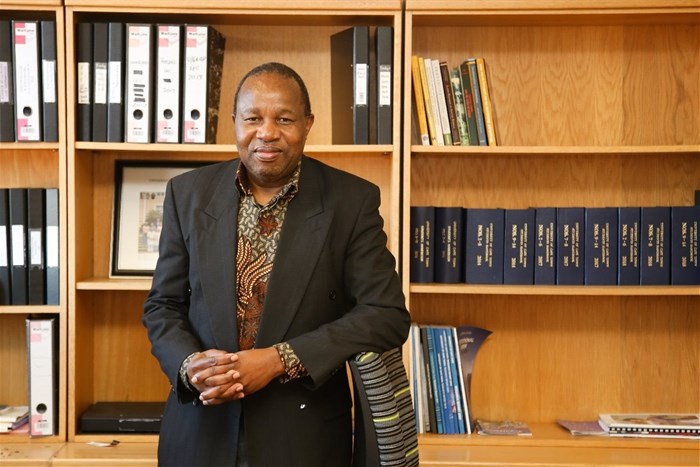Signifying a historic collaboration between the University of Cape Town (UCT) and the University of Pretoria (UP), Professor Maano Ramutsindela has been appointed as the Future Africa research chair in sustainability transformations, effective 1 April 2024. Ramutsindela, currently serving as professor of human geography in UCT's Department of Environmental and Geographical Science, will also hold the position of extraordinary professor in the Faculty of Natural and Agricultural Sciences at UP.

Professor Maano Ramutsindela, Future Africa Research Chair in Sustainability Transformations
Future Africa research chairs play a crucial role in advancing transformative research and having an impact at the science-policy-practice interface. The chairs work at a pan-African level and collaborate with global partners to set African agendas, build African capacities, create African networks of expertise and influence, and co-design and deliver high-impact transformative research in and for Africa.
Considered top-ranking research-intensive universities, UP and UCT recognise the potential of African sciences in addressing global sustainability challenges, and understand the importance of fostering pan-African research collaboration and capacity development.
In the current global context, where there is an urgent need for research that can foster a better understanding of societal transformations and profound systems change, transdisciplinary research becomes paramount. Future Africa, a pan-African platform for collaborative and transformative research located at UP, provides the ideal vehicle to achieve these mutual interests and ambitions.
Milestone appointment
UCT’s acting deputy vice-chancellor: research and internationalisation, Professor Jeff Murugan, describes this appointment as a significant milestone that underscores both institutions’ unwavering commitment to advancing knowledge and innovation: "We are confident that Professor Ramutsindela will serve as a beacon of excellence, driving impactful research and innovation that addresses the complex challenges facing Africa and the world."
Professor Sunil Maharaj, vice-principal: research, innovation, and postgraduate education at UP, says: “Our collaboration with UCT to advance Future Africa’s work in the challenge domain of sustainability transformations holds immense potential and benefits for both universities. This collaboration not only serves the needs of South African and African universities but also establishes a powerful model for realising the potential of Future Africa.”
“Professor Ramutsindela's extensive experience and commitment to socio-ecological relations and the political ecology of peace parks make him the ideal candidate to lead Future Africa’s efforts in sustainability transformations,” notes Dr Heide Hackmann, director of Future Africa. “His appointment is an exciting milestone for the platform and represents a significant step forward in our collective pursuit of global sustainability.”
Arua-Guild Cluster
As part of his role in leading and further developing activities in Future Africa's sustainability transformations domain, Ramutsindela will assume the role of co-director for the Arua-Guild Cluster of Research Excellence on the Politics of Sustainability. This cluster, co-led by the UP and the University of Oslo, engages in collaborative research to address critical issues related to sustainability.
“I am truly humbled and honoured to be appointed as the UP-UCT Future Africa research chair in sustainability transformations and excited about the opportunity to harness the transformative potential of African sciences in addressing sustainability challenges and working collaboratively towards a sustainable future for Africa and a just society,” says Ramutsindela.
Ramutsindela holds a PhD in Geography from Royal Holloway College, University of London, and a Master’s degree in Geography from the then University of the North. He is the immediate past dean of the Faculty of Science at UCT and has received numerous accolades both nationally and internationally for his outstanding contributions to academia. He is a recipient of numerous awards and fellowships, including the National Research Foundation (NRF) President's Award, the NRF Award for the Transformation of the Science Cohort, and the Fellow of the Society of South African Geographers.
This joint appointment showcases the power of collaboration, innovation, and pan-African research to drive sustainable development and global transformation.






































